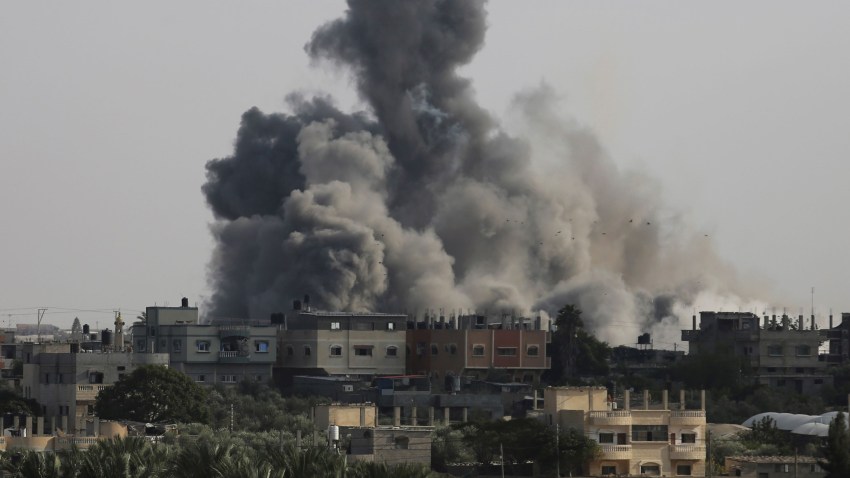Today at WPR, we’re covering the EU as a geopolitical actor and the aftermath of the Nagorno-Karabakh war.
But first, here’s our take on today’s top story.
Israel-Hamas war: U.N. Secretary-General Antonio Guterres condemned “clear violations of international law” in the Gaza Strip in his toughest remarks yet about the war Tuesday, specifically criticizing Israel’s evacuation orders for northern Gaza and bombardment of the territory, as well as Hamas’ use of civilians as “human shields.” (Financial Times)
Our Take: More than two weeks into the war, Israel is facing increased calls—including from the U.S. and EU—for, at the very least, a pause in its bombardment of Gaza to allow for more humanitarian aid deliveries, if not yet for a total cease-fire.
The increased calls for a pause in hostilities and criticisms of Israel’s actions in Gaza are largely a product of Israel’s rushed response to Hamas’ attack on Oct. 7. In some ways, the immediate response is understandable, considering the unexpected shock and sheer brutality of Hamas’ attack.
Get the Daily Review sent straight to your inbox every weekday.
In others, Israel’s response was predetermined by the history of the conflict and Israeli domestic politics. PM Benjamin Netanyahu was politically weakened by protests earlier this year over his controversial judicial overhaul, and he is already facing an intense backlash to the security lapses on his watch that failed to prevent Hamas’ attack. It’s unlikely he would have survived politically without the war-footing cohesion triggered by the immediate military response to the attack.
Still, while Israel’s intense and immediate retaliation may have been inevitable, it has nevertheless now backed the country into a corner, with no good options at its disposal. A ground invasion of Gaza increasingly looks like a high-cost, low-reward proposition, as eradicating Hamas might not be feasible, and the attempt to do so will lead to heavy casualties among Israeli forces but also Gaza’s civilian population, further fueling the criticisms already being directed at Israel. However, choosing to not invade Gaza and instead continue the aerial bombardment of the territory would likely be claimed by Hamas as a victory, while doing nothing to lessen criticisms over civilian casualties.
It would have made more strategic sense for Israel to have paused after Hamas’ attack, giving the Israeli public time to mourn, the military time to prepare its response and the government time to rally regional and global support, potentially even for a multilateral approach to defeating Hamas. That would have been a big ask of a country both traumatized and historically averse to outsourcing its security. But it almost certainly would have placed Israel in a better position, in terms of national cohesion as well as international solidarity, just 18 days into its war with Hamas.

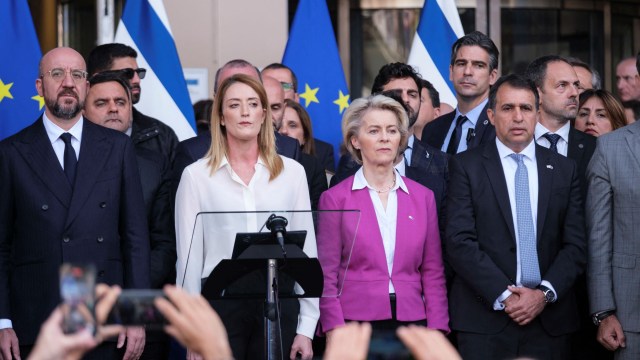
Don’t Count the EU Out When It Comes to Geopolitics
More often than not, when faced with an unexpected crisis, European Union leaders instinctively opt to bicker with each other, often hampering the union’s ability to respond to a fast-moving situation. This dynamic was once again on display with the EU’s response to the Israel-Hamas war, which critics have pointed to as proof that the EU can never become a truly geopolitical actor.
As columnist Alexander Clarkson writes, however, once the EU finds its feet, its long-term response to new challenges can prove remarkably resilient, in ways that tempt commentators more optimistic about European unity to assert that its geopolitical moment has finally arrived.
The Nagorno-Karabakh Wars Are Over, but Their Fallout Will Be Lasting
In a lightning strike on Sept. 19, Azerbaijan finally extinguished more than 30 years of de facto self-governance by ethnic Armenians in the embattled enclave of Nagorno-Karabakh.
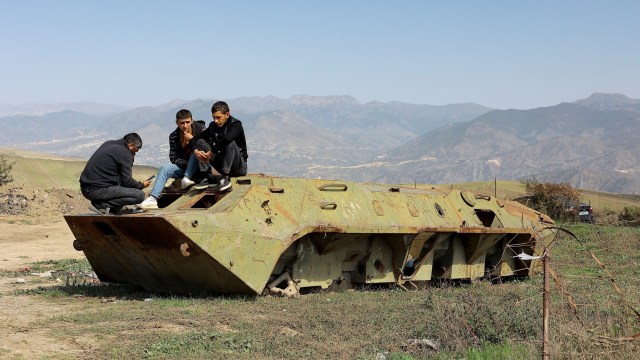
For Armenians, loss of the territory is perceived as a catastrophe. For Azerbaijanis, its reincorporation is the dawn of a new sense of sovereignty. But as Laurence Broers writes, how the conflict ended has key implications for the future.

We want to hear your take on the issues we cover. We’ll select one person from those who answer the question below to receive a free one-month extension of their WPR subscription.
Last week, news broke of a deal between the government of Venezuelan President Nicolas Maduro, the country’s political opposition and—unofficially—the United States guaranteeing a competitive election in 2024. In return, the Biden administration announced that Washington would lift sectoral sanctions on Venezuela’s oil and gold industries.
This week’s question: Should the U.S. have rolled back sanctions on Venezuela in order to ensure a competitive election there next year?
For more context: Read James Bosworth’s column on the agreement.

California Gov. Gavin Newsom met with Chinese President Xi Jinping earlier today as part of a weeklong mission to negotiate partnerships on climate policy. Newsom, a Democrat, has made tackling the climate crisis and cutting carbon emissions a major priority.
But his visit is part of a longer trend. In recent years, California has formed deep and interdependent ties with China, making the state a laboratory of sorts for U.S.-China ties. Those ties may become increasingly important amid growing competition between the two powers, as Matt Sheehan explained in a 2019 episode of WPR’s Trend Lines podcast.
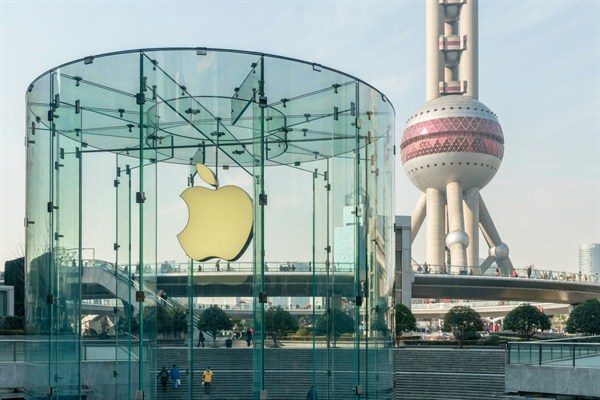
How California Became a Laboratory for U.S.-China Ties
Oct. 16, 2019 | Increasingly, underneath the geopolitical tensions between Washington and Beijing, California and China are forming deep and interdependent connections. Read more.
Liberian President George Weah will once again face off against Joseph Boakai in a Nov. 14 runoff vote, after official results were released for last month’s first-round election showing that neither candidate reached the absolute majority needed to win outright. The two previously faced each other in Liberia’s 2017 runoff presidential election.
Weah was expected to face headwinds in this election, just the fourth since the end of the Second Liberian Civil War in 2003, due to anxieties among Liberians—especially young adults—about the economy, security and the quality of public institutions, as Jacien Carr wrote in May.
Weah Has His Work Cut Out for Him in Liberia’s Upcoming Election
May 12, 2023 | President Weah is looking to win a second term in Liberia’s election, but a struggling economy and high inflation may prevent that. Read more.
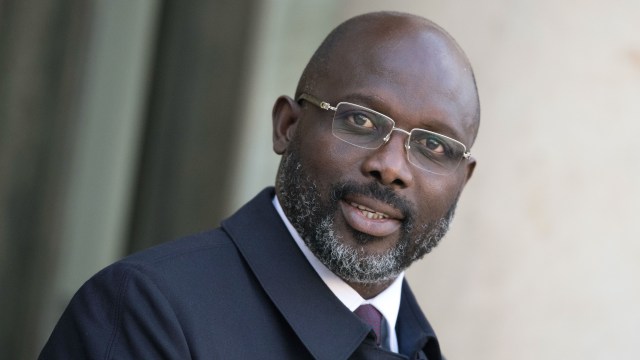
More From WPR
- Charli Carpenter on the Israel-Hamas war.
- Joshua Kurlantzick on transnational repression in Southeast Asia.
- Anas Iqtait and Tristan Dunning on the Palestinian Authority.
- James Bosworth on the Venezuela election deal.

